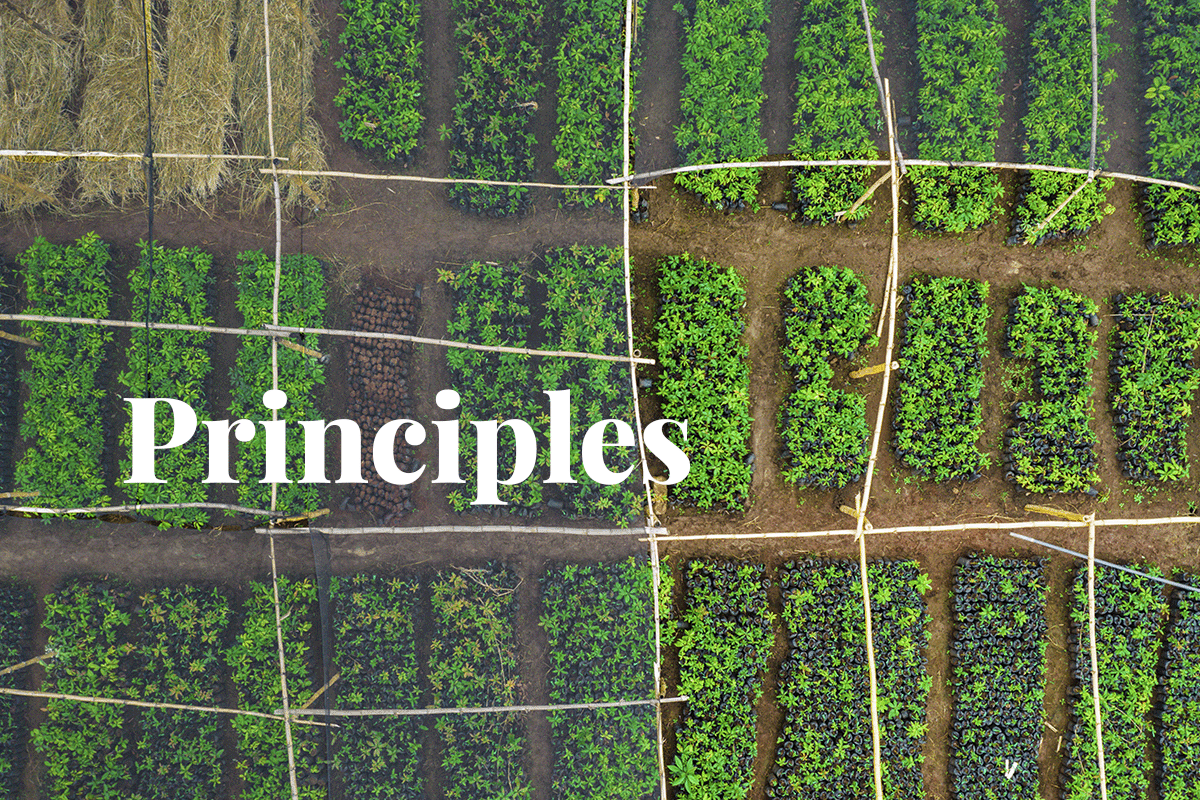The Integrity Council for the Voluntary Carbon Market (ICVCM) has unveiled its Core Carbon Principles (CCPs) and Program-level Assessment Framework to set stringent standards for high-integrity carbon credits. Developed with input from various organisations, the CCPs establish fundamental principles for climate impact based on science and best practices. The Assessment Framework ensures comprehensive transparency by requiring programs to publish accessible information about their emissions and social and environmental impacts.
 Aerial view of a tree nursery - Hongera Reforestation Project, DGB.
Aerial view of a tree nursery - Hongera Reforestation Project, DGB.
High-integrity credits must come from projects with robust social and environmental safeguards, focusing on sustainable development. Additionally, programs should obtain free, prior informed consent from Indigenous peoples and local communities and share benefits with them. Governance requirements have been streamlined, but CORSIA-eligible programs need to meet additional high-integrity criteria.
The CCPs aim to build trust, attract investment, and fund genuine climate impact projects. Annette Nazareth, ICVCM Chair, emphasises the importance of transparency and high integrity for an effective voluntary carbon market.
Read more: EU's Nature Restoration Law: a paradigm shift for biodiversity and climate resilience
The document contains the CCPs, Assessment Framework, Assessment Procedure, and CCP Attributes, allowing programs to apply for assessment. The ICVCM has revised the CCPs based on feedback, ensuring Indigenous peoples' voices were heard.
Carbon credits will receive the CCP label if both the program and category meet high integrity criteria. The council will assess various credit categories, prioritising those with significant market share. It will conduct audits and respond to complaints, taking a regulatory-like approach.
Read more: The rising demand for nature-based credits
These are the 10 Core Carbon Principles:
-
Effective governance: The carbon-crediting program shall have effective governance to ensure transparency, accountability, continuous improvement, and the overall quality of carbon credits.
-
Tracking: The program shall operate or make use of a registry to uniquely identify, record, and track mitigation activities and carbon credits issued to ensure credits can be identified securely and unambiguously.
-
Transparency: The program shall provide comprehensive and transparent information on all credited mitigation activities. The information shall be publicly available in electronic format and accessible to non-specialised audiences, enabling scrutiny of mitigation activities.
-
Robust independent third-party validation and verification: The program shall have program-level requirements for robust independent third-party validation and verification of mitigation activities.
-
Additionality: The greenhouse gas (GHG) emissions reductions or removals from the mitigation activity shall be additional, ie, they would not have occurred in the absence of the incentive created by carbon credit revenues.
-
Permanence: The GHG emissions reductions or removals from the mitigation activity shall be permanent, or where there is a risk of reversal, there shall be measures in place to address those risks and compensate for reversals.
-
Robust quantification of emissions reductions and removals: The GHG emissions reductions or removals from the mitigation activity shall be robustly quantified based on conservative approaches, completeness, and scientific methods.
-
No double counting: The GHG emissions reductions or removals from the mitigation activity shall not be double counted, ie, they shall only be counted once towards achieving mitigation targets or goals. Double counting covers double issuance, double claiming, and double use.
-
Sustainable development benefits and safeguards: The program shall have clear guidance, tools, and compliance procedures to ensure mitigation activities conform with or go beyond widely established industry best practices on social and environmental safeguards while delivering positive, sustainable development impacts.
-
Contribution toward net-zero transition: The mitigation activity shall avoid locking-in levels of GHG emissions, technologies, or carbon-intensive practices that are incompatible with the objective of achieving net zero GHG emissions by mid-century.
The ICVCM plans to strengthen the CCPs through regular updates and multi-stakeholder consultations, with the first revision process scheduled for 2025. These efforts aim to pave the way for a sustainable future and effective climate solutions.
Aligned with our vision, DGB Group supports the transparent and robust regulation of carbon crediting programs. We believe in the transformative potential of nature-based solutions that generate high-integrity carbon credits that aid in safeguarding and rejuvenating our natural environment. With a primary focus on pioneering initiatives in reforestation, afforestation, biodiversity restoration, and land revitalisation, DGB is dedicated to creating a positive impact. We empower businesses, investors, and individuals to actively participate in preserving nature through the carbon market. Together, we can shape a sustainable future and unlock the power of carbon credits, forging a greener and more sustainable world for generations to come.
Achieve net zero with DGB

